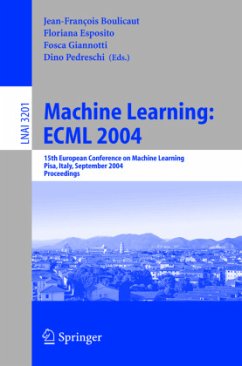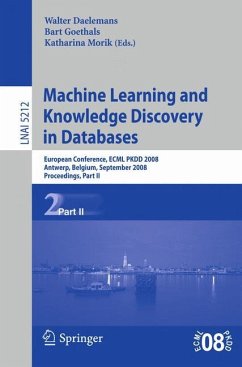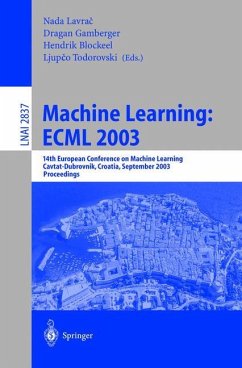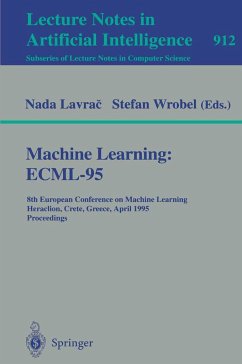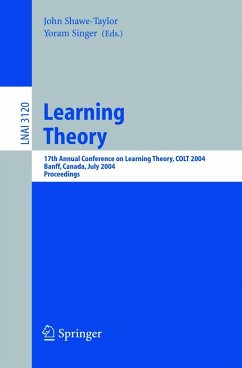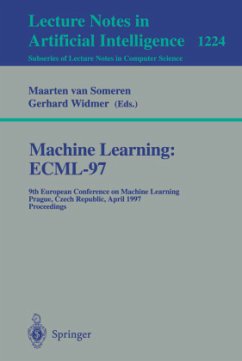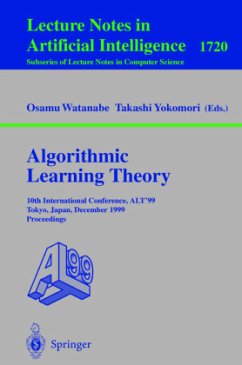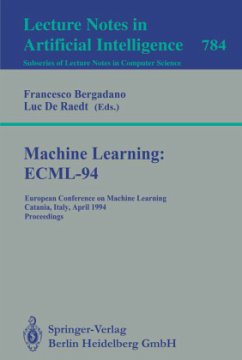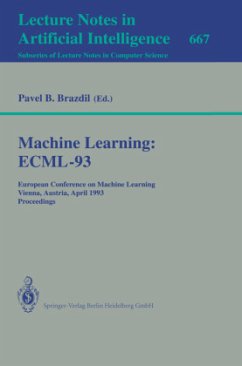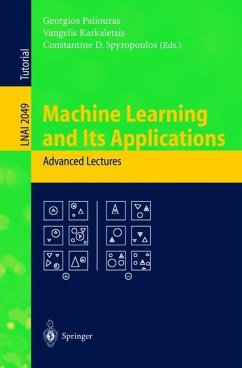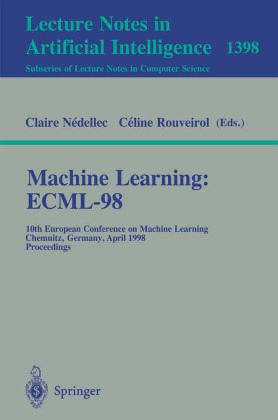
Machine Learning: ECML-98
10th European Conference on Machine Learning, Chemnitz, Germany, April 21-23, 1998, Proceedings
Mitarbeit: Nedellec, Claire; Rouveirol, Celine
Versandkostenfrei!
Versandfertig in 1-2 Wochen
39,99 €
inkl. MwSt.

PAYBACK Punkte
20 °P sammeln!
This book constitutes the refereed proceedings of the 10th European Conference on Machine Learning, ECML-98, held in Chemnitz, Germany, in April 1998.The book presents 21 revised full papers and 25 short papers reporting on work in progress together with two invited contributions; the papers were selected from a total of 100 submissions. The book is divided in sections on applications of ML, Bayesian networks, feature selection, decision trees, support vector learning, multiple models for classification, inductive logic programming, relational learning, instance-based learning, clustering, gen...
This book constitutes the refereed proceedings of the 10th European Conference on Machine Learning, ECML-98, held in Chemnitz, Germany, in April 1998.
The book presents 21 revised full papers and 25 short papers reporting on work in progress together with two invited contributions; the papers were selected from a total of 100 submissions. The book is divided in sections on applications of ML, Bayesian networks, feature selection, decision trees, support vector learning, multiple models for classification, inductive logic programming, relational learning, instance-based learning, clustering, genetic algorithms, reinforcement learning and neural networks.
The book presents 21 revised full papers and 25 short papers reporting on work in progress together with two invited contributions; the papers were selected from a total of 100 submissions. The book is divided in sections on applications of ML, Bayesian networks, feature selection, decision trees, support vector learning, multiple models for classification, inductive logic programming, relational learning, instance-based learning, clustering, genetic algorithms, reinforcement learning and neural networks.





